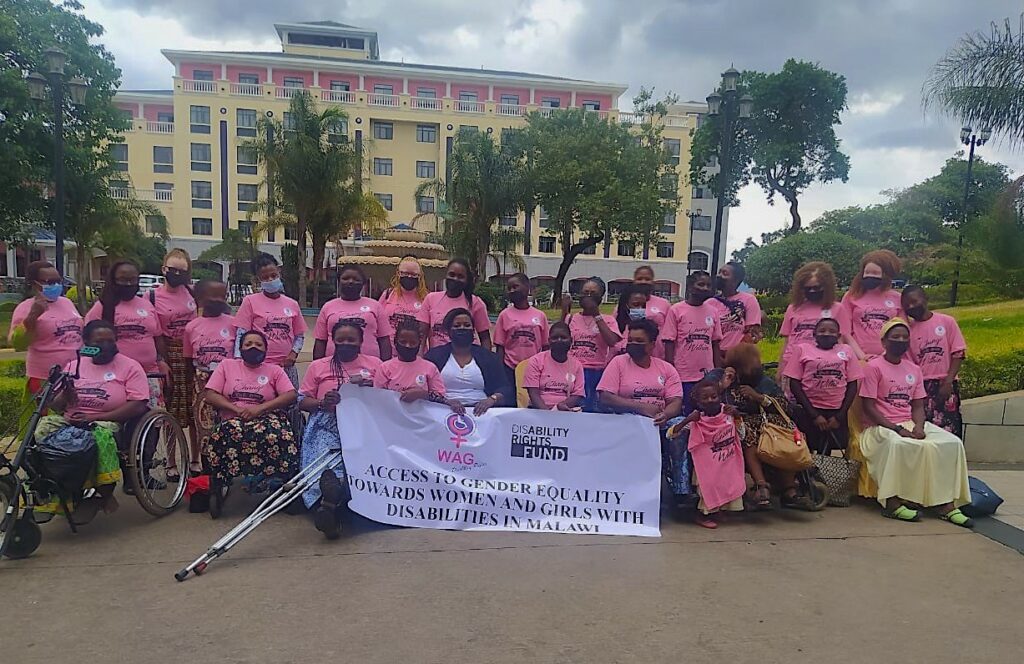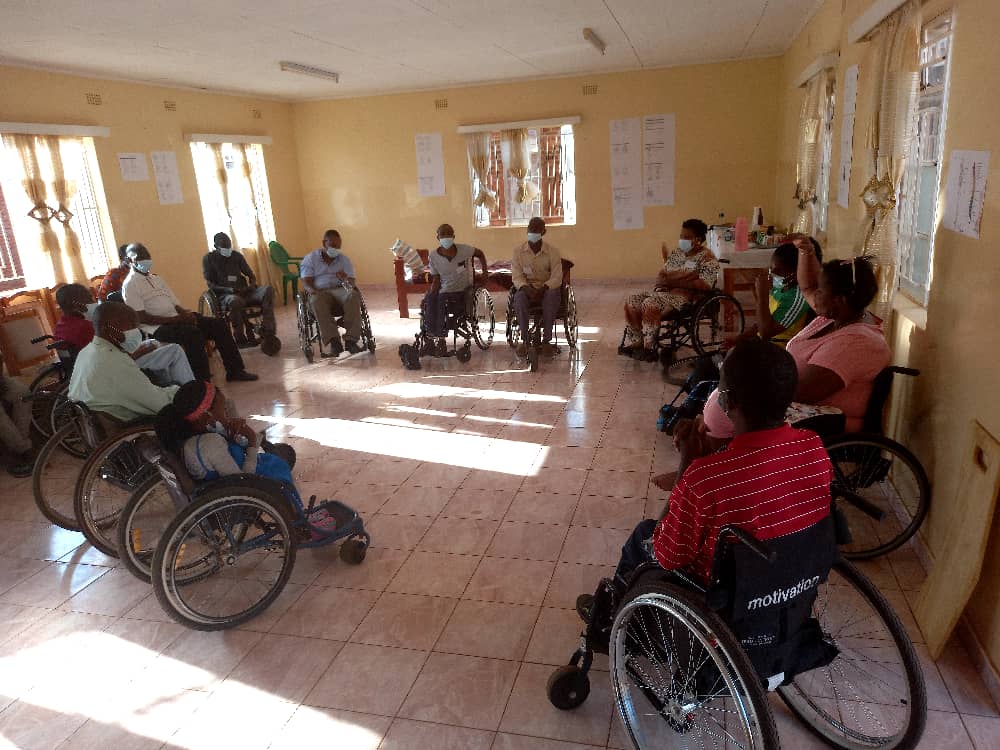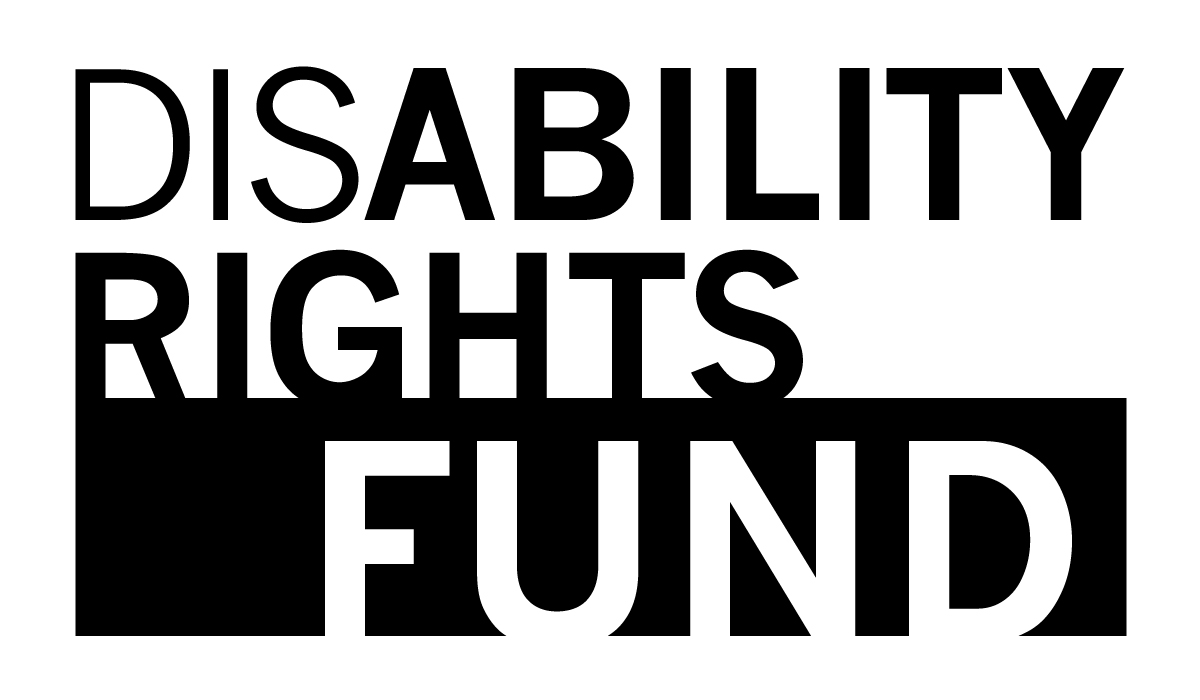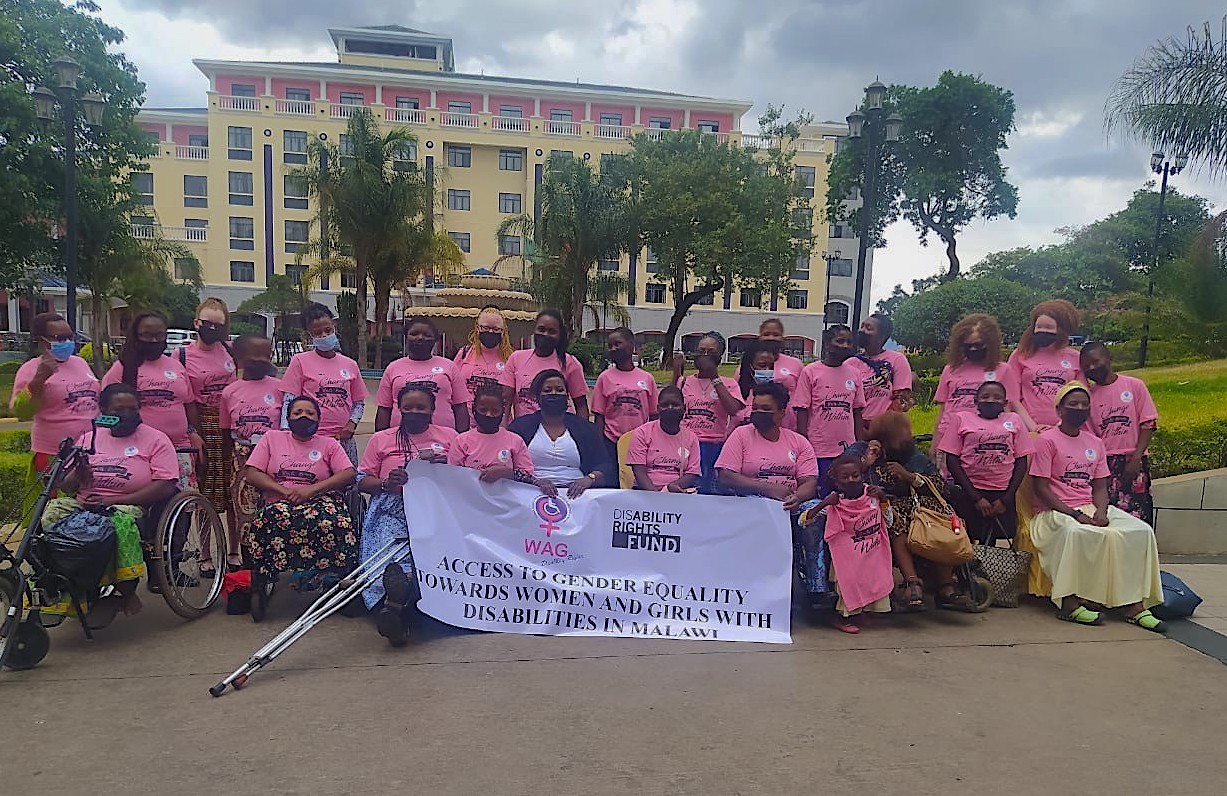Blog by Rucha Chitnis

In February 2022, the Malawi Ministry of Gender, Children, Disability and Social Welfare made ambitious commitments at the Global Disability Summit (GDS) in Norway. Simon Munde, the acting executive director of Federation of Disability Organization in Malawi (FEDOMA), a long-term grantee of the Disability Rights Fund (DRF), is thrilled by this outcome. An umbrella organization with a membership of 12 diverse disability rights groups in Malawi, such as Disabled Women in Development and Association of Persons with Albinism, FEDOMA’s advocacy has played a pivotal role in solidifying Malawi government’s commitments for GDS. “This work is not easy in Malawi. There are many barriers for persons with disabilities, and you just have to fight for the cause,” he says.
In the face of many obstacles, the Malawi disability rights movement is making inroads for inclusion.
One thing is clear: Grassroots movement building delivers significant wins!
FEDOMA members are jubilant that Malawi the government listened to their recommendations for GDS this year. These commitments include engaging with OPDs in a meaningful way, rolling out a full module for inclusive education in all teacher training colleges by 2023, promoting inclusive livelihoods and mainstreaming inclusive climate and crisis response. So why does GDS matter? A game-changing series of events convened by the International Disability Alliance, GDS offers ambitious commitments for the United Nations Convention on the Rights of Persons with Disabilities (CRPD) that are critical for achieving inclusive development agendas by governments. Since the 2018 GDS, DRF and the Disability Rights Advocacy Fund (DRAF) have awarded 35 grants totaling $1.61 million USD to 22 OPDs in Africa, Asia, and Europe to support GDS-specific advocacy commitments.
Building a movement for inclusion: Since 2014, DRF has resourced FEDOMA’s advocacy for the inclusion of disability rights in the national development framework and for the full harmonization of existing legislation with the CRPD. FEDOMA played a critical role for the first GDS event in 2018—convening with the Ministry of Gender, Children, Disability and Social Welfare, drafting commitments with OPDs and engaging government officials in the process. After the 2018 GDS, DRF awarded an advocacy grant to FEDOMA to support their strategy to hold the Malawi government accountable to follow through on the promises and monitor progress. “The challenge is implementation. The government can develop a beautiful policy, but not implement it,” observes Simon. Building upon FEDOMA’s advocacy, DRF continued its funding for OPDs to lead a process to develop a shadow report on the progress made by the government to implement Malawi’s GDS18 commitments and to renew and increase commitments this year.

“We didn’t want to leave any stone unturned for the implementation of the GDS commitments this year,” says Simon emphatically. It was important for FEDOMA members to get the buy-in from the government and engage with them in a meaningful way. During the pandemic, FEDOMA members got to work organizing numerous consultations with OPDs and government agencies and service providers, such as the National Statistics Office.
“The Malawi government made these commitments not at a rally here but in front of the whole world,” says Simon with pride. So what’s next for FEDOMA? One of their ambitious goals is to see a new legislation for persons with disabilities in Malawi. The 2012 National Disability Act is inadequate with gaps on gender and rights for marginalized groups, like persons with deafblindness. “We need to move towards the full domestication of the CRPD, which can only happen with the passing of a new law.” Malawi government’s backing of ambitious GDS commitments this year has ignited hope for the passing of a holistic legislation in the future. Looking ahead, Simon observes it will be crucial for the disability movement to institutionalize GDS commitments and put in place accountability mechanisms to hold the government’s feet to the fire. “We need to make more noise!” he says with full gusto.
Chrissy Zimba concurs. As DRF’s program officer for Malawi and a woman leader with a disability, this cause is personal and political.
“The example of Malawi shows how important it is for funders to resource movement building. Technical assistance grants are also important for umbrella organizations, like FEDOMA, to consult with their diverse membership of OPDs and create a robust and inclusive advocacy plan. We are here to boldly advocate for what’s right and move towards an inclusive society,” she says.
Simon agrees. “DRF has played an important role in reviving the disability movement in Malawi,” he says.

